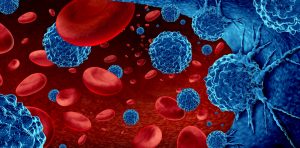
Tecentriq third time lucky after NICE nod in lung cancer
pharmafile | April 9, 2018 | News story | Sales and Marketing | NICE, Roche, biotech, drugs, lung cancer, pharma, pharmaceutical, tecentriq
After having been knocked by twice by NICE, Roche has finally received a recommendation for Tecentriq’s second-line use in non-small cell lung cancer (NSCLC).
The news comes shortly after Roche released results showing that a combination of Tecentriq and Avastin, in addition to carboplatin and paclitaxel, was able to improve overall survival (OS).
One of the major sticking points, besides the usual haggling over price, that NICE gave as its reasons for the previous two rejections were on the grounds that there was no evidence of improvement to OS.
The release of this data then cleared the path for approval, though NICE noted it would still be on the condition of a discount being offered on the list price of the drug.
Phase 3 data revealed that patients treated with Tecentriq lived a median of 13.8 months, 4.2 months longer than those receiving standard treatment.
“We are delighted that NICE has revised its decision, meaning that people living with this devastating form of cancer will now have access to a much needed treatment,” said Simon Eayrs, Integrated Franchise Lead at Roche. “This decision proves that patients are able to get access to new and innovative treatments when all parties work together to find a practical solution.”
Roche is no stranger to the process of negotiating with NICE, and this isn’t the first time it has had to manage this process with Tecentriq.
It succeeded to gain approval in bladder cancer in October of last year only after stiff negotiations on price that allowed the drug to be made available on the Cancer Drug Fund, after an initial knockback – making it the first immunotherapy to receive approval in bladder cancer in the UK.
The successful recommendation by NICE marks another pathway on a successful upswing of results for the company in immunotherapy, after it managed to show the previously mentioned benefit in OS and also posted intriguing data for the treatment of advanced squamous NSCLC, showing improve to progression-free survival but without, yet, showing benefits to OS.
Ben Hargreaves
Related Content

Roche’s Alecensa approved by FDA as lung cancer treatment
Roche has announced that the US Food and Drug Administration (FDA) has approved Alecensa (alectinib) …

Genentech’s Columbi meets primary endpoint in phase 3 trial for lymphoma treatment
Genentech, part of the Roche Group, has announced that its phase 3 STARGLO trial has …

NICE recommends migraine treatment for NHS use
The National Institute for Health and Care Excellence (NICE) has shared draft guidance recommending AbbVie’s …








